LS Lowry: Lost painting to go on sale after 70 years
- Published
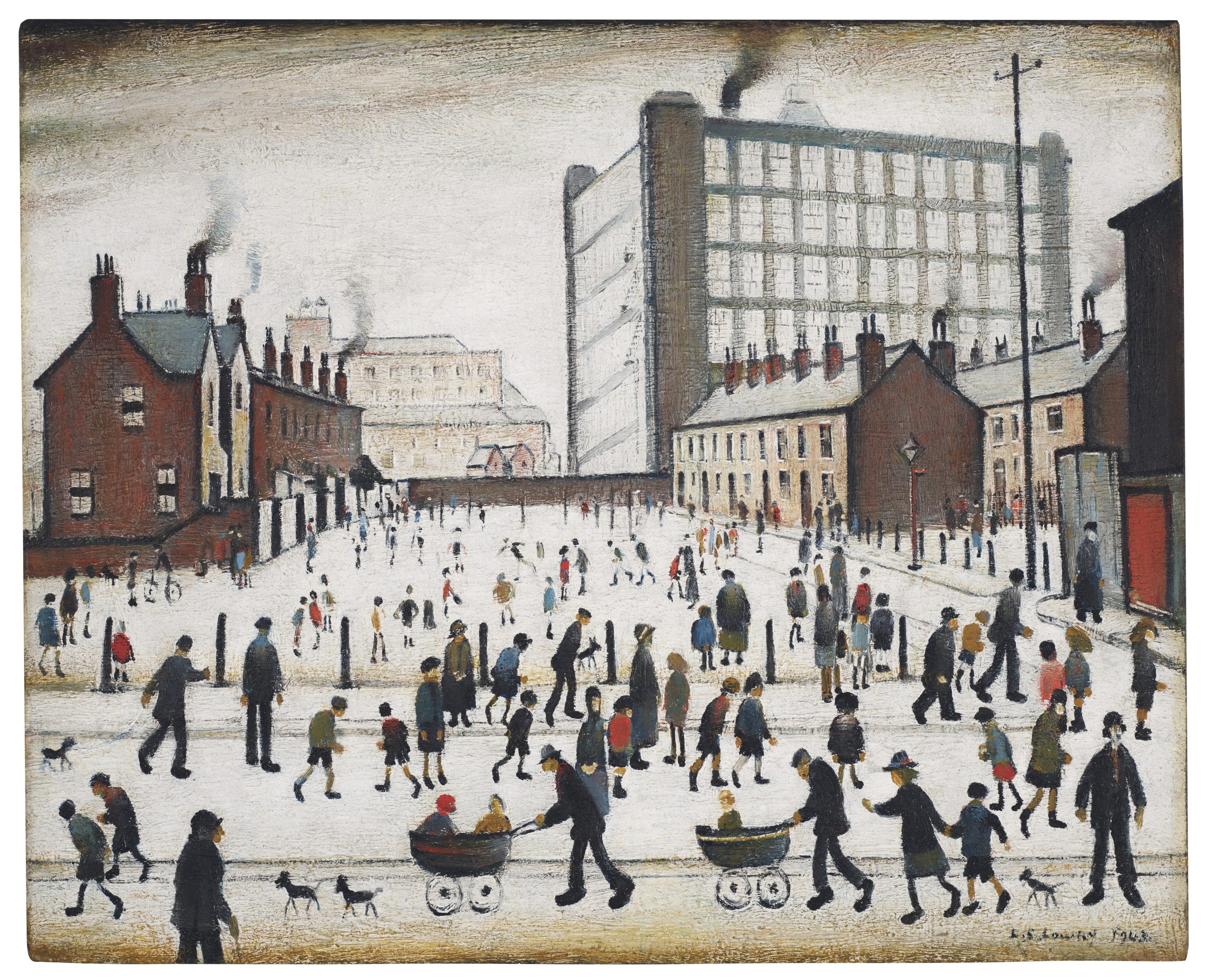
The work, which depicts workers enjoying a day off, is expected to sell for up to £1m
A painting by LS Lowry that was lost to the art world for more than seven decades has been unearthed.
The 1943 work, entitled The Mill, Pendlebury, depicts workers enjoying a day off and children playing cricket.
"There are no records of it, we simply didn't know it existed," said British art expert Nick Orchard of Christie's auction house in London.
The painting, which Lowry gave away, is expected to fetch between £700,000 and £1m when it goes on sale next month.
It has spent the majority of its life in the US, owned by influential medical researcher Leonard D Hamilton, who died earlier this year.
Lowry gave the painting to Mr Hamilton's parents more than 70 years ago, when the family were living in Manchester.
"Of course today we think 'oh wow, a Lowry' but in the 1940s he wasn't represented by a major dealer or gallery," Mr Orchard told the BBC.
"He most likely would've only shown his work locally or maybe to people he knew," he added.
The couple later gave it to their son who hung it on the wall of his student accommodation while studying at the University of Oxford.
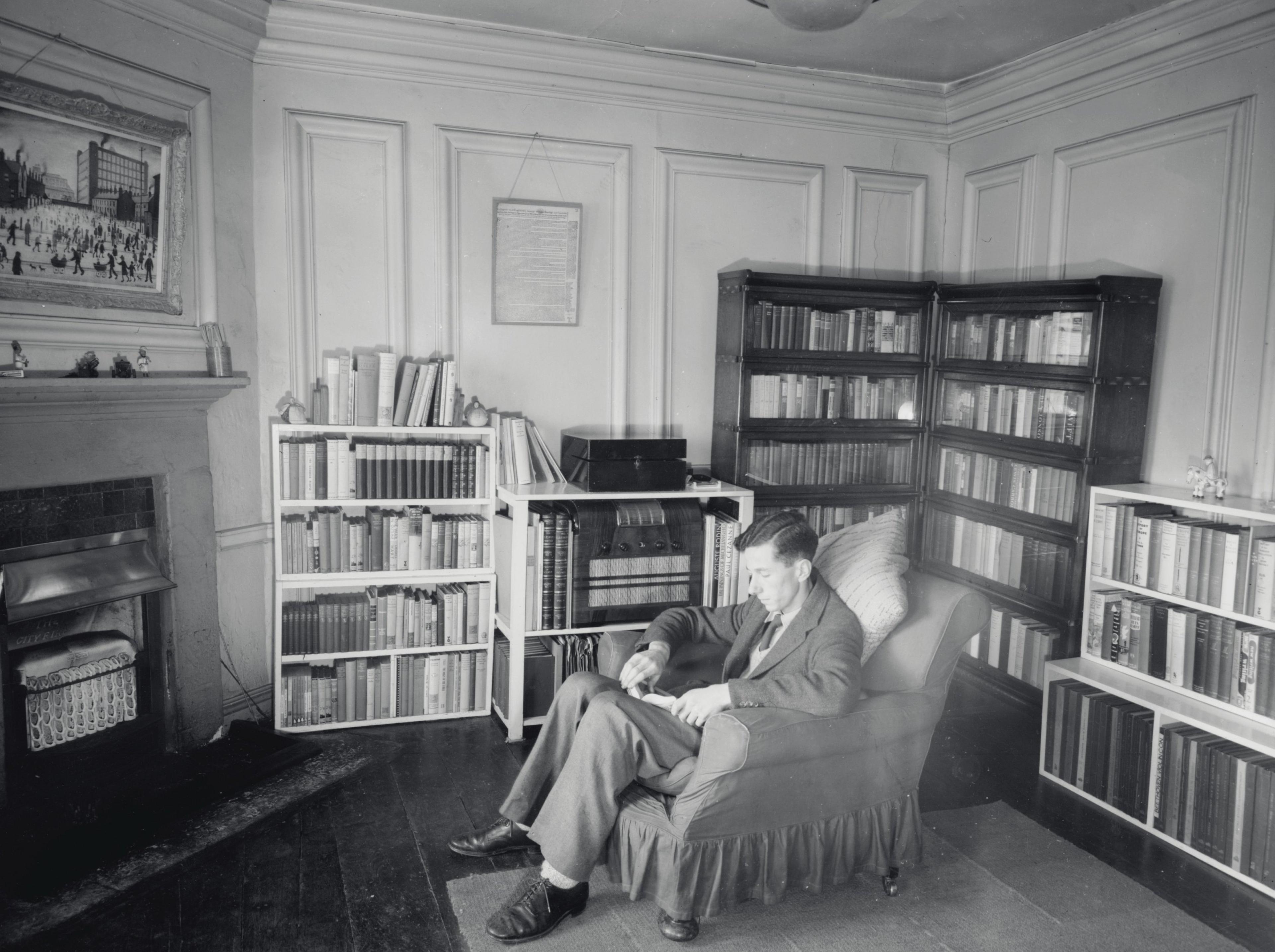
The Lowry seen (top left) hanging in Mr Hamilton's accommodation at the University of Oxford
Mr Hamilton, who played a key role in discovering the structure of DNA, later moved to New York where he lived in one of the city's last standing brownstone buildings which were demolished in the 1950s. The house went on to feature in a Life magazine article.
In the 1970s, Mr Hamilton moved to a larger home in Long Island where he was able to better house his extensive art collection - including the Lowry.
"I don't think you can call it a unique painting but it's a very special one", Mr Orchard added.
"It's a lovely composition - and it has everything you would want in a Lowry: factory, chimneys, people scurrying around."
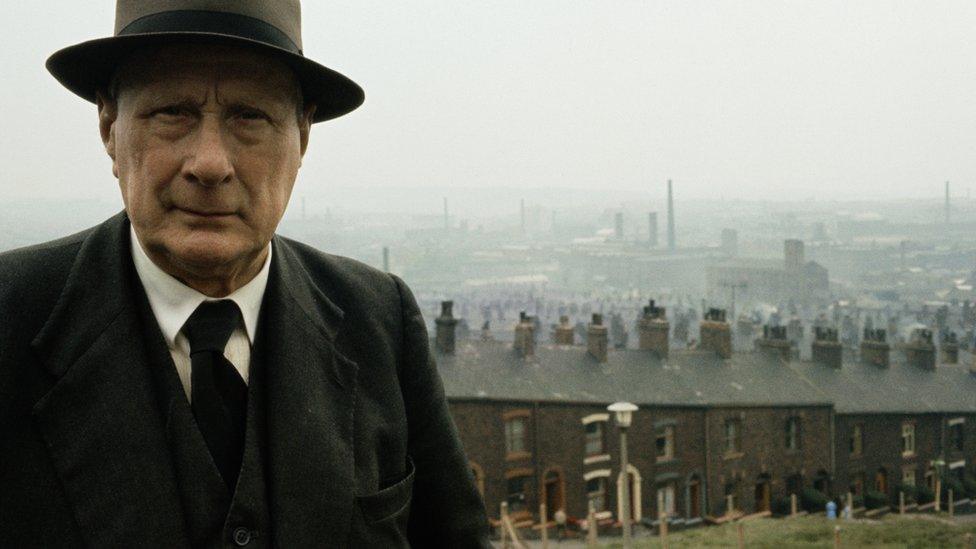
LS Lowry pictured near his home in Pendlebury, Lancashire, in 1964 with the mill behind him
Earlier this year Lowry's 1938 work A Cricket Match sold for nearly £1.2m at auction.
Two works hold the record auction sale price for a Lowry: The Football Match and Piccadilly Circus both sold for £5.6m in 2011.
Born in 1887, Laurence Stephen Lowry gained recognition for his seemingly simple depictions of working-class life in the industrial parts of northern England. He died in 1976.
- Published30 August 2019
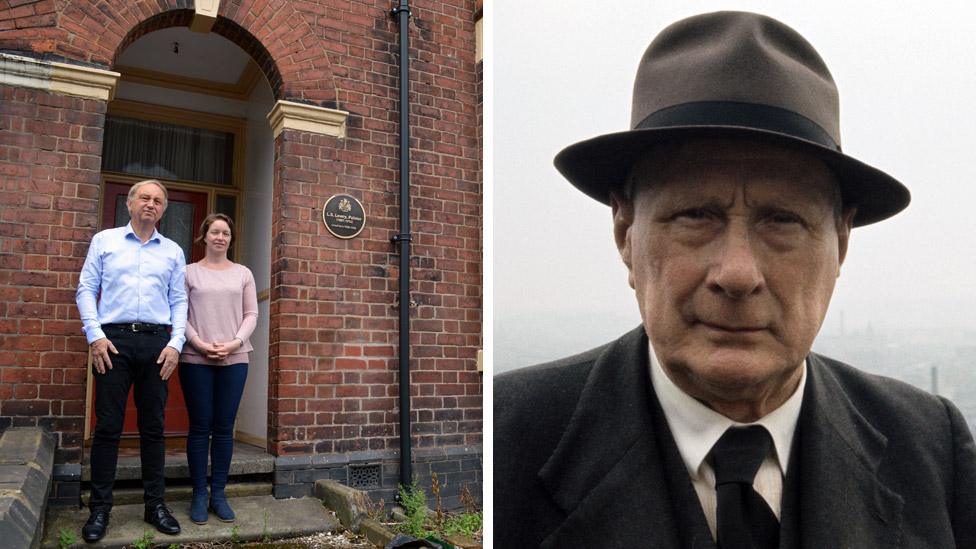
- Published17 November 2018
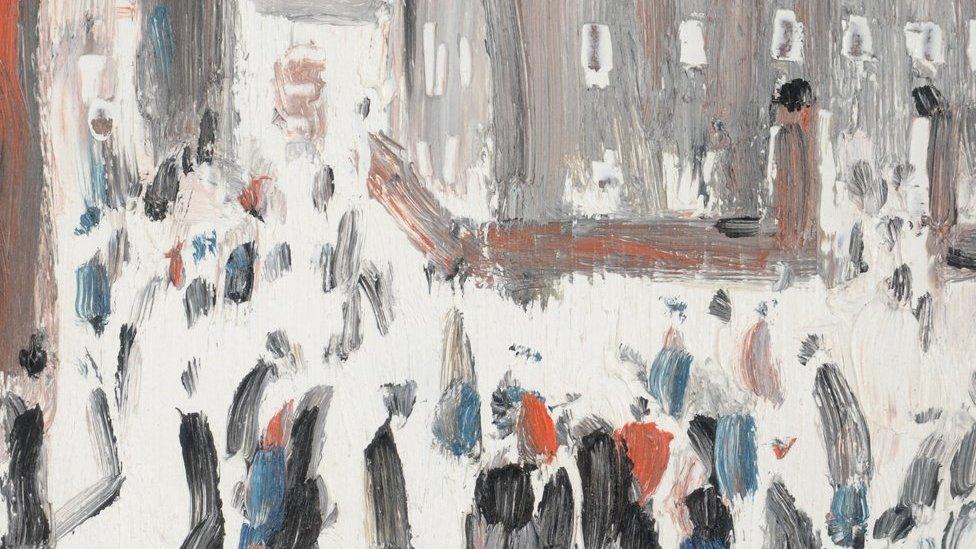
- Published2 August 2019
